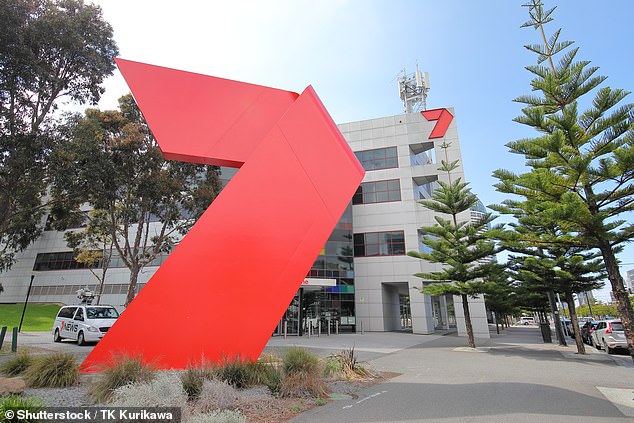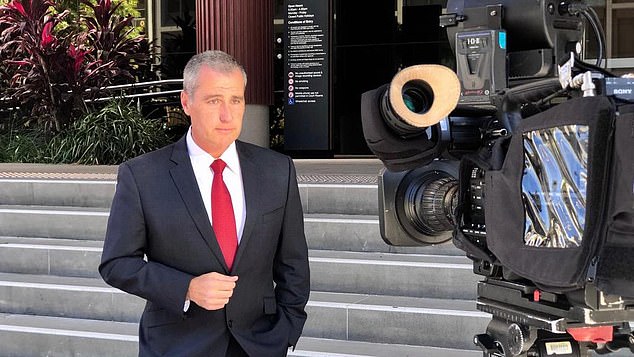- Seven says more than a dozen women have come forward with new allegations
- Ovadia strongly denies any wrongdoing amid ongoing legal scandal
EXCLUSIVE
The Seven Network has spent months compiling an explosive dirt bag of alleged allegations against former star police reporter Robert Ovadia, and the scandal now threatens to claim former colleagues as collateral damage.
The file is understood to be so extensive that Seven is preparing to “draw a line in the sand” and fully commit to fighting allegations of the journalist’s unlawful dismissal despite another round of court-ordered mediation.
The revelation comes after the network told the Federal Court on Thursday that 13 more women had come forward with allegations against the Walkley Award-winning journalist since he was fired in June.
Ovadia has strongly denied any wrongdoing.
The veteran reporter launched legal action against Seven on August 9, claiming the broadcaster had breached the terms of his contract and had no grounds to fire him.
The 51-year-old also claimed the network’s new news chief Anthony De Ceglie deliberately made statements “calculated to demean, offend and hurt” him.
Seven defends both accusations.
Former Seven Star crime reporter Robert Ovadia was summarily fired in June following a weeks-long internal investigation into allegations of inappropriate conduct, which he denies.

The veteran reporter had worked at the network for more than 20 years before being fired.
The legal drama comes after the Fair Work Commission failed to resolve the dispute through mediation six weeks ago.
An attempt to resolve the matter during a video conference between the opposing parties in July quickly failed, with Seven refusing to participate in further sessions.
Seven fired Ovadia, effective immediately, on June 21 following a weeks-long internal investigation that uncovered two instances of alleged inappropriate conduct by the journalist in its Sydney newsroom.
Seven’s lawyer Vanja Bulut told the Federal Court on Thursday they related to evidence that Ovadia had sent “inappropriate images by text and email” to a young female producer and an image “of a man’s genitals” to a male colleague.
“Following the plaintiff’s dismissal, 13 additional women came forward. The plaintiff has been informed of this,” Bulut told Judge Elizabeth Raper.
‘My client has written outlining the additional allegations that have come to light. Those documents have been served on the plaintiff.
‘Even if they (Seven) did not have a basis for primarily terminating applicant’s employment at the time, the conduct that subsequently came to light does provide a basis.’
Ovadia’s lawyer, Andrew Gotting, said that while his client had received some of the material, many of the details had been redacted.
Seven is understood to have made extensive redactions to protect the privacy of dozens of Ovadia’s former colleagues, both men and women, who now fear they could be caught up in the scandal.

The court said more than a dozen women have come forward with allegations against Ovadia.
Ovadia, who spent almost a quarter of a century at Seven, has continued to strongly deny any suggestion he engaged in inappropriate behaviour.
The journalist, who did not attend court, said the allegations against him were part of a plot to “intimidate” him into dropping his case against his former television employer.
“The claims are unsubstantiated and Seven has never provided evidence despite repeated requests,” he said on Thursday evening.
“Even today in court there is no evidence to support any of this; just a dirty tactic to try to intimidate me and prevent me from defending myself.”
Despite the parties’ troubled history with mediation, Judge Raper ordered a new round of talks, this time in person, between the two sides, noting that it was “It’s worth a try before the case returns to court in February.


